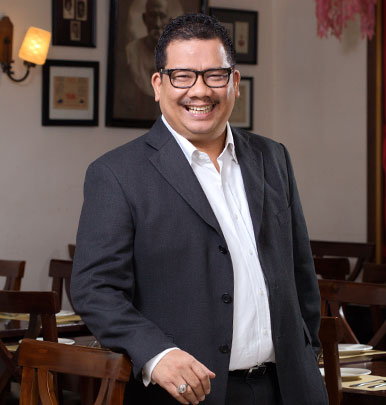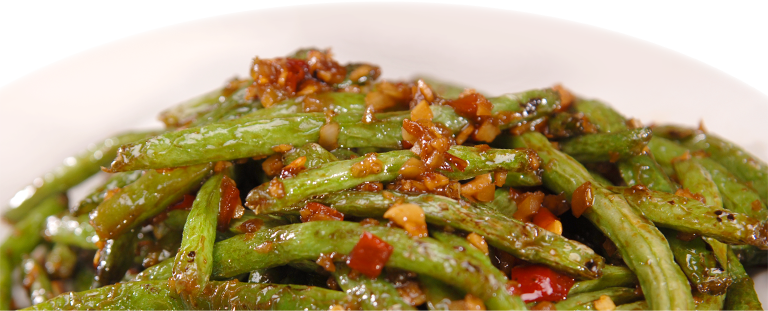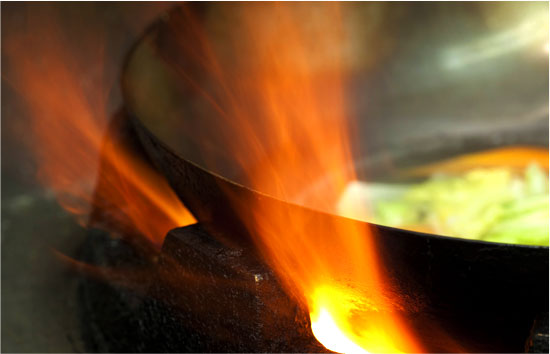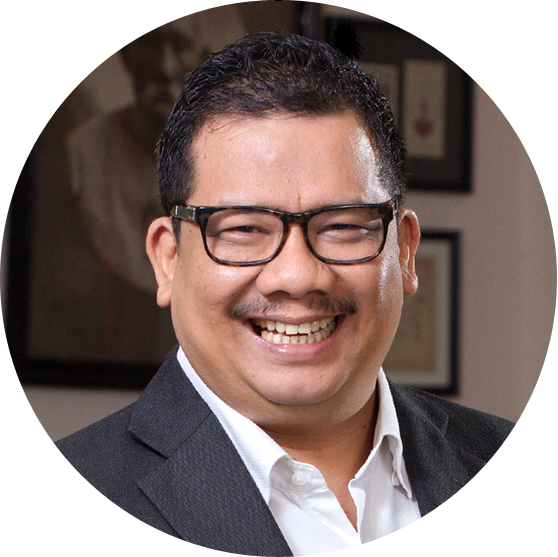Journey to Fulfilling Peranakan Appetites:
There’s a sparking joy I feel when people like the food and are satisfied with the taste. There’s also a plus point in the fact that the restaurant business means I am able to provide employment for many people


Savoring Ayam Goreng Ibu Tiri (Stepmother’s fried chicken) is enough to tantalize anyone’s taste buds and make their eyes start watering. That could either be because it’s so good or you might have hit your spicy food tolerance level. Whatever the reason might be, you will subconsciously continue to spoon more servings of warm rice onto your plate. It goes without saying that this spicy marinated chicken dish has a distinctive, tangy and delicious flavor.
While you’re there, don’t just stop at one dish. Try and taste Sayuran Segar Ibu Suri (Godmother’s Fresh Vegetables) or Buncis Tongkat Kaisar (Emperor Wand’s Green Beans), and explore the rich flavors of spice-filled Peranakan Cuisine.
“We intentionally visited Singapore and Malaysia to look for authentic recipes,” says Renaldo Panggabean, President Director of PT Resanel Prima Utama as he unveils his experience in the culinary business he started with his sister, Tika Panggabean.

Culinary business for Renaldo Panggabean is a passion as well as an opportunity to reap profits.
In 2007, Renaldo thinks there weren’t very many peranakan restaurants that targeted the middle class.
There were some, but they were premium cafés that not all people can enjoy. At that time, peranakan taste was somewhat still considered as something new for the public. Our strategy was to open up a new market by serving peranakan dishes in a peranakan setting. We began by opening our first Radja Ketjil Restaurant in Terogong, South Jakarta. It turned out to be a success.
Renaldo explained that there’s a difference between Radja Ketjil and other peranakan restaurants in Jakarta. Peranakan cuisine originated in Singapore and Malaysia, so the flavors are based on the taste of the people there. Most peranakan restaurants in Indonesia adopt a menu from Singapore or Malaysia then sell it here. I don’t think the Indonesian market likes that too well. In Radja Ketjil, the peranakan dishes are reconstructed to adjust to the Indonesian palate. We combine the oriental recipes with authentic Indonesian taste. That’s the difference.

Never Stop Innovating
There’s a tight competition in the restaurant business.
The main innovation lies in the menu, said Renaldo.

If possible, make it different from other competitors. Our R&D Department has a special kitchen dedicated for food research. Product research never stops, each month we have a presentation of new dishes.
If it tastes good, we create a standard operating procedure (SOP) for the recipe and keep it. If not, then we work on it to have it tested again. For example, Ayam Goreng Ibu Tiri is a modification of a Gorontalo dish that we came across in its place of origin. We also look for authentic recipes in other places like Penang. So we have a stock of recipes. From time to time we do a menu evaluation.
If there are some dishes that aren’t selling too well, we replace them with a new menu from our stock of recipes. A menu update is done at least once a year, but there was a time we did it twice a year. We also innovate in creating experiences. The core of the restaurant business is products and services, so innovation must concentrate on those two things. Anyone that comes into a restaurant expects to get good food and good service.
Renaldo manages PT Resanel Prima Hutama without any specific culinary background. He started out his career by working in the banking sector. In 2007 he met a few friends who have had experience in the restaurant business. In their casual conversation about restaurants, Renaldo gave some managerial suggestions. “We didn’t even have any plans when we met at the time,” he reminisced.
When the first Radja Ketjil restaurant opened for public, Renaldo was still working as a banker. Then after the restaurant proved to be a success and received offers to open several new outlets that Renaldo decided to dedicate one hundred percent of his time to manage his business.
“There were lots of offers, we needed to expand, and we needed to focus. So, I decided to quit working for the bank.” Within only six months after its first outlet opened, Radja Ketjil opened its second restaurant. Today, there are eight restaurants under the management of PT Resanel Prima Hutama.
Culinary Business Sparks Me
There’s a sparking joy I feel when people like the food and are satisfied with the taste. There’s also a plus point in the fact that the restaurant business is labor-intensive because it means I am able to provide employment for many people. For me, the culinary business is a passion as well as an opportunity to reap profits because my hobby is to go on culinary trips. I hope Radja Ketjil will become a place where many people will come to fulfill their appetites.
Addressing Challenges, Smart Investment is the Key
Renaldo found the business with several challenges. The biggest challenge lies in managing human resources because the restaurant business is a service-based business. What is offered are services and products or in this case food. Everything from the cooking process to plating the dishes must be done right. Consistency and quality must be maintained. Maintenance of cooking appliances is also a challenge. However, the way we do it, humans control the use of appliances. Currently our approach is to have our employees work according to the standard operating procedures (SOP) and work with honesty. We have approximately 300 employees. We provide in-house training for our employees. Whether they are newcomers or seniors, crew level or managerial level, they all receive training on a regular basis, particularly if there is a new product or SOP.
Investment also presents a challenge for us. Some of our outlets are in malls. The overhead cost is very high because there are many fees to pay, including rent, service charge, etc. Usually the owner along with a partner deposits a certain amount capital to open a new outlet. I invite other people to invest in this business. However I don’t invite just any other person, only close friends and family. Revenue depends on the day and location of the outlet. For example for Saribanon, because the food sold is lower in price, the revenue is different from Radja Ketjil. On average one outlet can generate 180 million to 400 million rupiahs in revenue per month. This amount usually increases during weekends and holidays.
He trusted his personal investment at DBS. “I have been a loyal DBS customer for five years. I was treated like their close friends and families. Until now, I have a very good relationship with both the RM and head of branch. The business has been helped a lot with personal wealth investment product I trusted at DBS. All of the products I buy yield good results. I was also experiencing yield from cross currency product, starting from USD, AUD, and EURO”, Renaldo opinionated.
He also shared his experiences in being informed from DBS about the market and its relevance with his investment products. “No hard selling, so I don’t feel like I’m obliged to buy. That’s one of the reasons why I remain a loyal DBS client”, said Renaldo.
Never let DBS’ performance decline, because in my opinion the bank already performs very well. I hope to see more product innovations, in addition to mainstream products, which will generate more returns in the long run.

All the profit I reaped from personal investment product is very useful to expanding my businesses. Up to now, Radja Ketjil has 8 outlets in Jakarta, Tangerang, and Bandung. Moreover, we are preparing franchising business next year outside Java. That's the dream.



